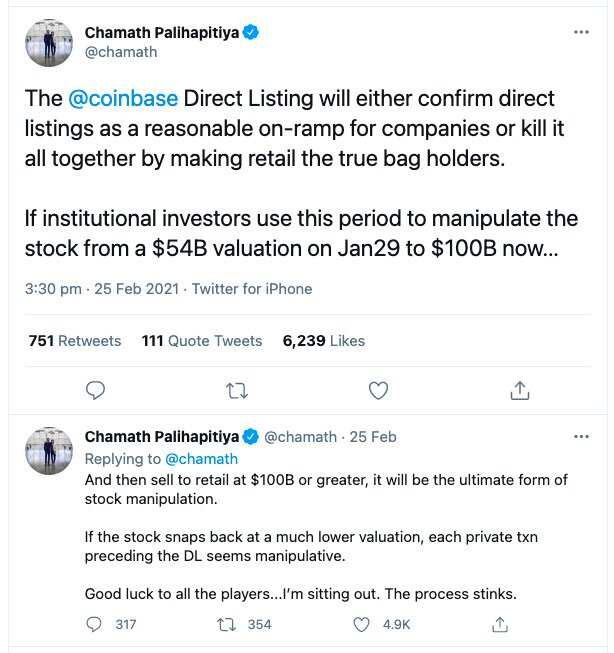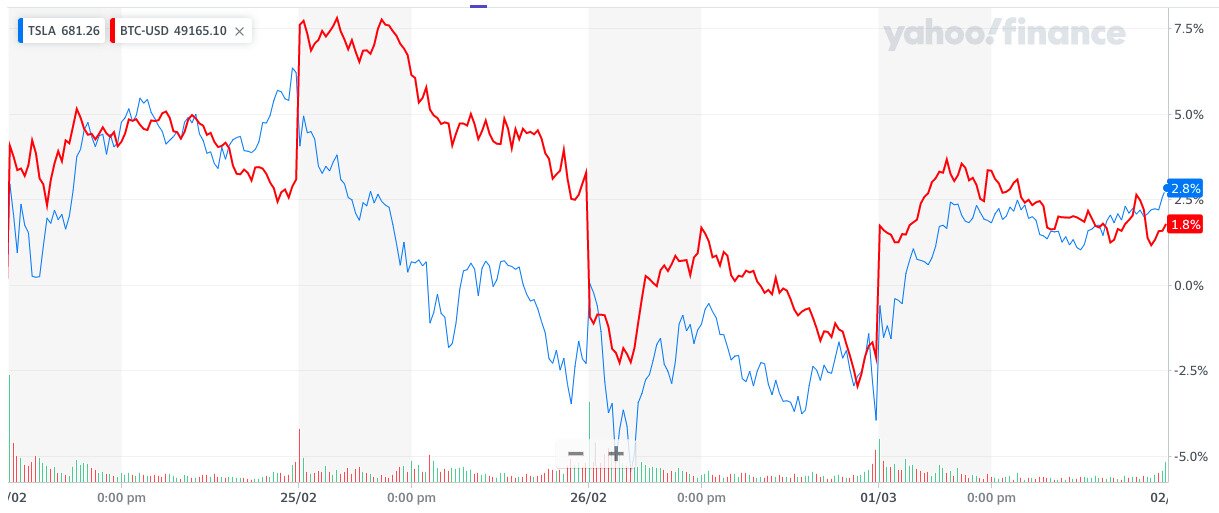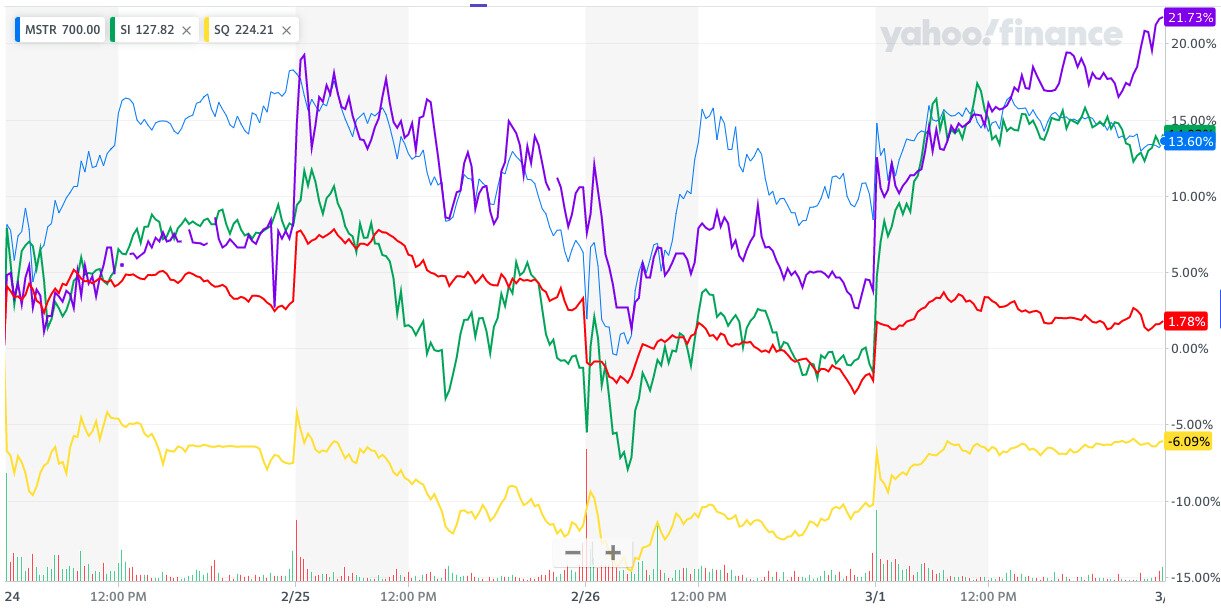- >News
- >Coinbase is About to Go Public. What Does it Mean for Crypto at Large?
Coinbase is About to Go Public. What Does it Mean for Crypto at Large?
The United States’ biggest cryptocurrency exchange is about to go public. That’s right, Coinbase is going to put its shares on the Nasdaq stock market via a direct listing, providing the crypto industry with another, big step on the road towards mainstream acceptance.
Coinbase’s direct listing is a big deal for a variety of reasons. Aside from boosting mainstream acceptance, the company’s filing with the SEC provides a highly encouraging indication of just how far crypto has already come. The exchange has 43 million verified users and works with 7,000 institutions, while it handles over $90 billion in assets.
Not only that, but Coinbase’s listing will also help investors gain exposure to bitcoin and other cryptocurrencies without having to actually hold them. In the process, the market for cryptocurrencies themselves will expand, raising prices in parallel, and then raising Coinbase’s stock in turn (and so on). However, potential investors should be wary that, with a direct listing, Coinbase’s shares may (initially at least) be more volatile than they would have been with an IPO.
Coinbase: Direct Listing vs. IPO
There’s no official date (yet) for Coinbase’s listing, yet it’s likely to happen by the end of the second quarter of this year. While there was initially much talk of the exchange going through an initial public offering, Coinbase confirmed in its SEC filing that it will directly list its own shares on the Nasdaq Global Select Market.
For those unfamiliar with the difference, a direct listing involves the listing of already existing company shares. By contrast, an initial public offering (IPO) involves the sale of newly created shares in a company, shares which are underwritten by an intermediary, such as an investment bank. The benefit of an intermediary is that it helps guarantee the sale of (at least a certain number of) stocks, although it will also charge a commission per stock sold.
Conversely, a direct listing avoids fees and lockup periods (which prevent stockholders from selling shares before a certain date), yet they can be more volatile than IPOs. This is because, without underwriters helping to guarantee the sale of shares, prices can fluctuate more widely.
This is something potential investors should bear in mind when considering the purchase of Coinbase shares, which will be listed under the COIN ticker. In fact, some observers are concerned that retail investors could end up with a raw deal. This concern arises partly from the fact that, following four private share sales over only the past few weeks, Coinbase’s valuation ballooned from $54 billion to $100 billion, indicating a high share price (specifically $373 per share) that could potentially dive upon listing.
Source: Twitter
Coinbase Shares Will Be Correlated With Crypto
Assuming you want to purchase some COIN shares, you’ll be able to do so via pretty much any major brokerage or trading platform, once the direct listing takes place.
Arguably the main advantage of owning Coinbase shares is that it grants traders exposure to the price swings of cryptocurrency (hopefully upward price swings), without having to actually buy or hold any crypto themselves. With anything from 15% to 45.8% of Americans claiming they own cryptocurrencies (depending on whose survey you read), there are still majorities of people who don’t own crypto, and may be turned off by the apparent complexity of purchasing bitcoin or the ever-present danger of exchange hacks.
A Coinbase direct listing gives such people the chance to benefit from crypto’s volatility with a minimum of risk and complexity. This is bullish for bitcoin and other cryptocurrencies, if only because it will help create a kind of positive feedback loop between Coinbase’s share price and the cryptocurrency market.
That is, when the prices of bitcoin and other cryptos rise, Coinbase shares will rise. And when Coinbase’s stock rises, the prices of cryptocurrencies are likely to rise, as investors take the good news about Coinbase as evidence of increasing mainstream acceptance of crypto, etc.
We’re not sure how powerful this amplification effect will be, but if you look at how Tesla’s stock price has become correlated with the price of bitcoin after the company invested $1.5 billion in the cryptocurrency, it’s easy to see how good news affecting one side of the equation can impact on the other.
Tesla stock (blue) and bitcoin price (red) between February 24 and March 2. Source: Yahoo! Finance
Other Stocks with Exposure to Crypto
This mention of Tesla leads us to highlighting how Coinbase won’t be the only publicly listed company that has fairly direct exposure to bitcoin and/or other cryptocurrencies.
As of writing, we now have at least seven publicly traded companies with exposure in one way or another:
-
MicroStrategy (MSTR): software company which now holds just over 90,000 BTC
-
Tesla (TSLA): electric vehicle manufacturer that bought $1.5 billion in bitcoin in February
-
PayPal (PYPL): payment provider, began letting users buy, sell and spend cryptocurrency in November
-
Silvergate Capital (SI): bank with a focus on crypto industry. Holds around $5 billion in deposits
-
Square (SQ): payment company that holds just over 8,000 bitcoins, lets users buy, sell and spend crypto
-
Galaxy Holdings (BRPHF): investment company which had $815 million in assets under management as of December 31, 2020.
-
Mogo (MOGO): Canadian fintech company which invested $1.5 million in bitcoin at end of 2020
This list will obviously be expanded with Coinbase’s direct listing, while it’s now also possible to buy shares of at least four cryptocurrency mining companies:
-
Riot Blockchain (RIOT)
-
Marathon Patent Group (MARA)
-
Canaan (CAN)
-
HIVE Blockchain Technologies (HVBTF)
Looking at a small selection of the seven companies listed above, we also see that, like Tesla, they’re correlated with bitcoin to varying degrees.
MicroStrategy (blue), Silvergate Capital (green), Square (yellow), Galaxy Holdings (purple) and bitcoin (red) between February 24 and March 2. Source: Yahoo! Finance
Again, this means that, if you want to benefit from bitcoin’s rises (and falls) but don’t want to hold the cryptocurrency itself, you may be better off buying shares in some of the above companies. Or Coinbase, once its direct listing finally takes place.
Your financial risk will largely be the same, but in not having to worry too much about security, the complexities of managing your own wallet or possible bank difficulties, you will avoid some of the hassle. Then again, you might also avoid some of the fun.




